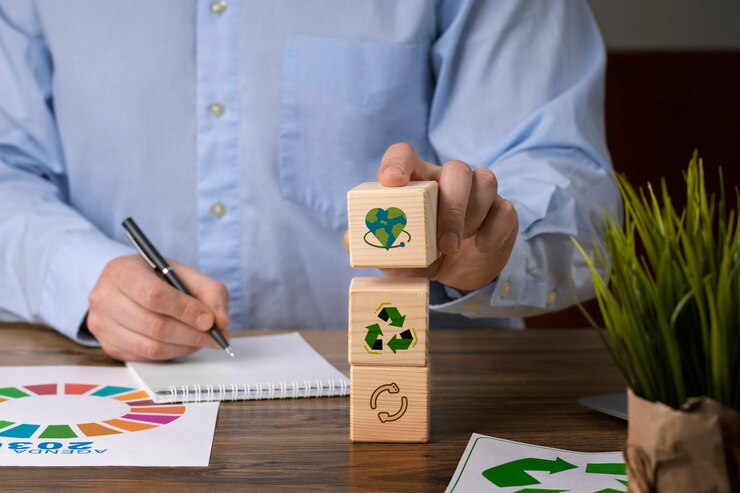In the last decade, sustainable investments have gained significant importance in financial markets and have become a key part of the global debate about the economic and environmental future. Sustainability is no longer an isolated concept, but a central pillar in how businesses, governments, and individuals make financial decisions. But what exactly are sustainable investments? Why are they important for economic growth? This article will explore how sustainable investments contribute to economic development, the role they play in creating a more balanced and prosperous future, and what you should know before considering such investments in your portfolio.
What are sustainable investments?
Sustainable investments are those that aim to generate financial returns while also promoting a positive impact on society and the environment. These investments focus on companies, projects, or assets that operate under principles of social, environmental, and governance responsibility (ESG). Investors in sustainable assets seek not only to maximize economic returns but also to contribute to a greener and fairer economy.
The concept of sustainability in investments includes a variety of approaches, such as:
- Investment in renewable energy: Companies that produce or promote the use of clean energy such as solar, wind, and geothermal.
- Corporate social responsibility: Companies that implement fair labor practices, reduce their environmental impact, and commit to the well-being of communities.
- Green bonds: Debt instruments issued to finance projects with environmental benefits, such as ecosystem protection or fighting climate change.
The impact of sustainable investments on economic growth
Sustainable investments are not only positive for the environment, but they also have direct effects on economic growth. Below, we analyze some of the key benefits they bring to the global economy.
- Creation of new sectors and green jobs
Sustainable investments encourage the creation of new economic sectors, such as renewable energy, electric mobility, sustainable agriculture, and waste management. These sectors not only drive economic growth but also generate thousands of jobs worldwide. For example, the solar energy market has experienced exponential growth in recent years, leading to the creation of many jobs in solar panel installation and maintenance.
- Reduction of long-term economic risks
By investing in companies and projects that promote sustainability, investors reduce the risk of exposure to sectors that may face long-term difficulties due to issues like resource scarcity, climate change, or stricter environmental regulations. Sustainable investments focus on companies that are better prepared to face these future challenges, making them a safer option for long-term investors.
- Encouragement of innovation and efficiency
Companies that adopt sustainable practices often lead innovation in their industries. By focusing on efficient resource use, waste reduction, and the creation of more sustainable products, these companies not only improve profitability but also inspire others to follow their example. This push for innovation has a positive impact on global economic competitiveness, contributing to the growth of the world economy.
Types of sustainable investments
Sustainable investments can be classified into several categories, each offering different opportunities and benefits. Below, we describe some of the most common.
- Investment in renewable energy
Renewable energy is one of the most prominent areas within sustainable investments. With growing awareness of climate change and the transition to a cleaner energy model, many companies and governments are channeling resources into renewable energy technologies. Investing in companies that produce solar, wind, or hydroelectric energy can be a way to contribute to sustainability while generating an economic return.
- Green bonds and sustainable investment funds
Green bonds are financial instruments that allow investors to fund ecological and sustainable projects, such as building clean energy infrastructure or restoring ecosystems. Additionally, there are sustainable investment funds that exclusively invest in companies that meet environmental, social, and governance (ESG) criteria. These funds allow investors to diversify their portfolios while supporting social and environmental causes.
- Impact investing
Impact investing focuses on generating a measurable positive social or environmental impact in addition to a financial return. This type of investment focuses on sectors such as health, education, and access to basic services. Impact investors aim to create positive change in communities while earning an economic return on their investments.
- Investment in companies with good ESG practices
Companies that adopt sustainability and social responsibility practices are more likely to be profitable in the long run. Investors interested in sustainable investments often focus on companies that demonstrate a commitment to ESG principles, such as reducing carbon emissions, improving labor conditions, and implementing policies that promote diversity and inclusion.
How to invest sustainably?
If you’re interested in making sustainable investments, here are some practical tips:
- Research before investing: Make sure the companies or projects you’re interested in truly meet ESG criteria and are transparent about their sustainable practices.
- Diversify your portfolio: Ensure that your investments are diversified across different sectors and types of sustainable assets, such as green bonds, shares of green companies, and sustainable investment funds.
- Consult a financial advisor: A sustainable investment expert can help you better understand the available options and create an investment strategy aligned with your financial and personal goals.
Conclusion
Sustainable investments are a powerful tool to foster economic growth and contribute to creating a more sustainable future. By investing in companies and projects that prioritize social, environmental, and governance responsibility, investors can not only achieve financial benefits but also help tackle global challenges like climate change and natural resource scarcity. As consumers and investors, we all have a role to play in building a greener, fairer, and more prosperous world. By making informed and sustainable decisions, we can be active participants in the shift towards a more responsible and balanced economy.
